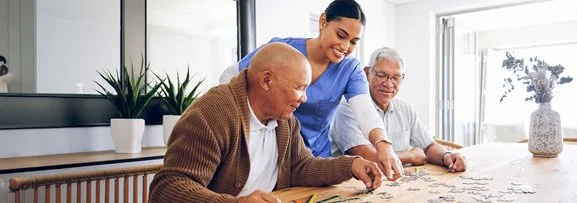Mental Health Commission
Older adults can be exposed to a variety of risk factors that can increase their vulnerability to mental health issues, including chronic pain, loss of a partner or friends, dependence on others, loss of autonomy, and loneliness.
Older adults in aged care and other supported accommodation settings are also at increased risk of mental health issues.
Differentiating mental disorders from 'normal' ageing is important. So are effective partnerships between psychiatry, rehabilitation, and aged care.

Ways to support the mental health of older adults in the community include:
- looking after physical health through good diet and exercise, medical check-ups and medication reviews
- prioritising good consistent sleep – seven hours or more a night
- encouraging participation in experiences to keep the mind active
- supporting connection with friends, family and the community
- peer support groups can help with bereavement and depression.
Want to know more?
To learn more about how to maintain your mental health and wellbeing, visit the Think Mental Health website.
If you are looking for more information as an Aboriginal or Torres Strait Islander person or for an Aboriginal or Torres Strait Islander person, visit the Strong Spirit Strong Mind website.
Support and Services
In an emergency, call Triple Zero (000).
- Talk to your GP or a psychologist.
- Ask your local government what seniors’ groups are available in your area, or try Red Cross services.
- Access grief, loss and bereavement services.
- If you need clinical mental health care, there are Community Adult Mental Health services to support you.
- There are also residential services in the community, private hospital services and other publicly funded services available. Your GP should be able to find a suitable service for your needs.
Page last updated6 May 2025




